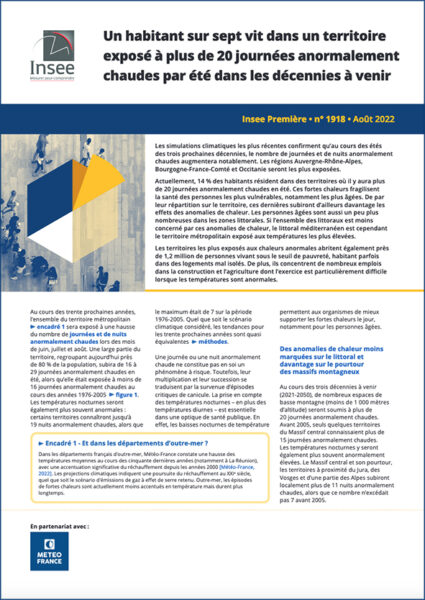In this issue on perspectives for consumption between now and 2030, Ruth Wood, Laurent Meunier and William Lamb examine the potential role of consumption as a lever for reducing greenhouse gas emissions, basing themselves on the state of UK research into the question. After reviewing the current context of climate change negotiations and the way emissions are currently accounted, they point up the advantages of starting from the end-consumer in the accounting of national greenhouse gas emissions. They go on to identify the main policy levers for lowering these consumption-related emissions, taking particular notice of the proportion of imports embedded in products consumed in a country like the UK. These include tax adjustment at borders, the active participation of firms, the integration of consumption-related emissions into national carbon budgets etc. Lastly, they stress the increasing usefulness of the British research for achieving awareness of the impacts of consumption on the climate, and also the need to take the longer term view, involving “realistic” time horizons, given the enormous efforts that will be required to meet the emissions target set for limiting global warming to 2°C by 2100.
The Role of Consumption in Climate Change: Impacts on the Climate and Potential Levers –the UK Example
Cet article fait partie de la revue Futuribles n° 403, nov.-déc. 2014



